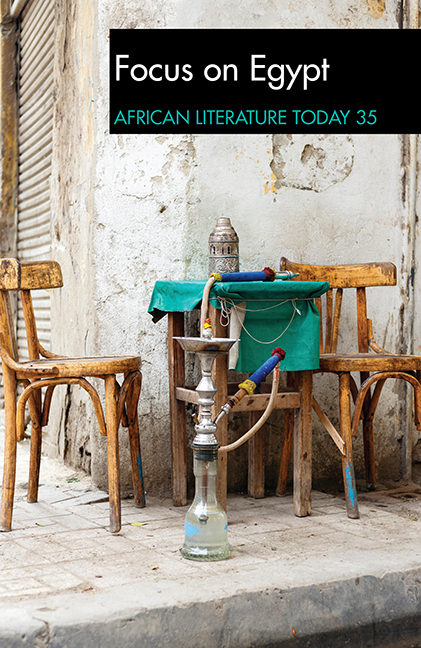Musa Idris Okpanachi, Music ofthe Dead
from Reviews of Nigerian Poetry
Published online by Cambridge University Press: 24 August 2019
Summary
Musa IdrisOkpanachi, an Associate Professor of English at theDepartment of English, Federal University, Dutse, Jigawastate, has authored three collections of poems: TheEaters of the Living (2007), From theMargins of Paradise (2012), and Musicof the Dead (2016). Dark, haunting images ofblood, corpses, and cemetery recur in his poetry, apparentlydepicting the regularity of death in his country. Byutilizing satiric and hyperbolic elements, limpid dictioninterspersed with sepulchral images, Okpanachi uncovers thedegeneration usually indicative of postcolonial failure. Itis this persistent degeneration in Nigeria that animatesOkpanachi's preoccupation with funereal imagery.
His latestpoetry collection, Music of the Dead, ismade up of 72 poems. It opens with ‘A Long Silence’, a prosepoem which presents in dense rhythm a montage of uncannyscenes of ‘an age stranger than time and chameleon’ (1). Inthis strange age, the news of people dying is so common, butthe causes of their deaths might seem ludicrous were it notstrange. Due to the commonness of death in the land, thepoet laments that ‘the graveyards are full; the country is acemetery in the hands of the dead’ (2). The poem prefacesthe kind of grim imagery one will mainly come across in thecollection – imagery that induces anything but hope andcheer.
The sequence ofpoems in ‘Dogs and Angels 1-111’ narrate the manifestationsof ‘gallows’, ‘nooses’, ‘graves’, ‘houses ablaze’,‘cemetery’ etc., (9-12). ‘The Forerunner’ portrays theruler's perversity which leaves behind a trail of death(18), while the poem ‘Sharks’ is shot through with grislyimages:
Death is a million
Magic numbers
In democratic coffins
We have dug 150 million graves. (26)
The theme ofdeath finds more resonance in ‘Black Flower’, a poemrecounting the ‘seasons of massacre’ (28). In ‘The Hawkersof Blood’, the poet comments on the sense of viletriumphalism exhibited by killers who boast that they areheirs of the ‘primitive gods of war’ and delight ‘incelebration of death’ (76). The scenes depicted in this poemevoke the devastation wrought in certain parts of Nigeria byBoko Haram, an Islamist terrorist group.
- Type
- Chapter
- Information
- ALT 35: Focus on EgyptAfrican Literature Today 35, pp. 317 - 319Publisher: Boydell & BrewerPrint publication year: 2017



